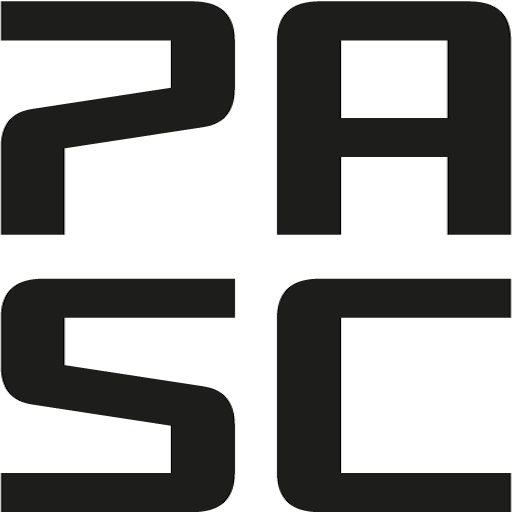The PASC18 Organizing Team wishes you a happy holiday season and looks forward to welcoming you to Basel from July 2–4, 2018. In this bulletin, we announce the “interdisciplinary dialogue” plenary session at PASC18, our partnership with ISC High Performance and the proximity of our events in 2018, and remind you of upcoming submissions deadlines.
Interdisciplinary Dialogue – The Colourful Theory, and Visible and Invisible Matter in the Universe
The interdisciplinary dialogue is a novel plenary session that we introduce this year for the first time in the PASC Conference Series program. The aim is to provide a relaxed and engaging forum where the audience, representing various scientific disciplines, can gain insight into the research of a specific domain. To this end, the session takes the form of an “interview” between two prominent computational scientists from two different disciplines.
For the interdisciplinary dialogue at PASC18, Professor Petros Koumoutsakos, a computational science researcher from ETH Zurich, will interview Professor Constantia Alexandroufrom the University of Cyprus about her domain of expertise – quantum chromodynamics. Many – if not most – fields in physics employ high performance computing (HPC), yet quantum chromodynamics (QCD) might be the premiere example of an area very difficult to understand outside of the field. In this dialogue, Constantia and Petros will look at what computational QCD achieves through the use of HPC, contextualizing it within a more general discussion of modern-day scientific computing. They will attempt to answer such questions as, “How do we ‘compute’ theory?” and “Will future computers change the way that theoretical physics ‘experiments’ are performed?”
Chromodynamics helps us understand our universe
The strong interaction is one of the four forces describing complex phenomena in the evolution of the universe from the quark gluon plasma formed just after the Big Bang at the birth of the cosmos to the formation of neutron stars. The bulk of visible matter in the universe is due to the strong interaction and understanding its properties requires the solution of quantum chromodynamics (QCD), a relativistic quantum gauge theory exhibiting confinement and asymptotic freedom properties that distinguish it from the other known theories. Solving QCD is carried out through large scale simulations using the largest supercomputers such as Piz Daint at the Swiss National Supercomputing Centre and Titan at Oak Ridge National Laboratory. Recent progress in algorithms and access to larger computers have led to deeper understanding of the strong interactions, such as resolving the thirty-year-old puzzle of the spin of the proton and providing input for probing dark matter in the universe.
Biography
Constantia Alexandrou is Professor of Physics at the University of Cyprus and Institute Professor at the Cyprus Institute. She holds a BA degree in Physics from Oxford University and a PhD in Theoretical Nuclear Physics from the Massachusetts Institute of Technology. She held research positions in Germany and Switzerland before joining the University of Cyprus. Her field of research is the study of the strong interactions using large-scale simulations of quantum chromodynamics. She is the Director of the Computation-based Science and Technology Research Center of the Cyprus Institute and coordinator of two Marie Skłodowska-Curie European Joint Doctoral programs in Computational Science.
Further information on this session is available at: pasc18.pasc-conference.org/program/interdisciplinary-dialogue/
Call for submissions reminder: deadlines are rapidly approaching!
We would like to remind you that the deadlines for minisymposia and papers submissions are rapidly approaching.
Minisymposia: January 7, 2018
Papers: January 19, 2018
Posters: February 4, 2018
We look forward to receiving your contributions through the conference online submissions portal, and would be grateful if you could forward this information to colleagues and collaborators.
Event partnership between ISC 2018 and PASC18
ISC High Performance and the PASC Conference are pleased to announce that ISC 2018 and PASC18, two major events in the European HPC ecosystem, are scheduled back-to-back at the end of June and beginning of July 2018.
From June 24 – 28, 2018, ISC High Performance will embrace a range of subject matter that is critical to the development of high performance computing. The conference will also present you with the latest industry trends, networking and partnership opportunities. Join over 3,500 attendees and 150 exhibitors in Frankfurt, Germany. Visit the ISC conference website.
The following week, we welcome you to Basel, Switzerland, for PASC18. Frequent, direct train services link Frankfurt to Basel in less than 3 hours.
Don’t miss the opportunity to combine the two events. ISC High Performance and PASC look forward to welcoming you to Germany and Switzerland for thought-provoking technical sessions and additional networking opportunities.
ABOUT PASC18
PASC18 is the fifth edition of the PASC Conference series, an international platform for the exchange of competences in scientific computing and computational science, with a strong focus on methods, tools, algorithms, application challenges, and novel techniques and usage of high performance computing. PASC18, co-sponsored by the Association for Computing Machinery (ACM), will be held at the Congress Center Basel in Basel, Switzerland, from July 2 to 4, 2018.
PASC18 welcomes submissions that demonstrate innovative research in scientific computing related to the following scientific domains:
- Chemistry and Materials
- Life Sciences
- Physics
- Climate and Weather
- Solid Earth Dynamics
- Engineering
- Computer Science and Applied Mathematics
- Emerging Applications Domains (e.g. Social Sciences, Finance, …)
Submissions that are interdisciplinary in nature are strongly encouraged.
Full submission guidelines are available at: pasc18.pasc-conference.org/submission/submissions-portal/
CONFERENCE CHAIRS
- Florina Ciorba (University of Basel, Switzerland)
- Erik Lindahl (Stockholm University)
MINYSIMPOSIA AND POSTERS PROGRAM CHAIRS
- Florina Ciorba (University of Basel, Switzerland)
- Erik Lindahl (Stockholm University, Sweden)
- Sabine Roller (University of Siegen, Germany)
- Jack Wells (Oak Ridge National Laboratory, US)
PAPERS PROGRAM CHAIRS
- Sabine Roller (University of Siegen, Germany)
- Jack Wells (Oak Ridge National Laboratory, US)
PASC18 Scientific Committee: pasc18.pasc-conference.org/about/organization
Further information on the conference and submission possibilities are available at:pasc18.pasc-conference.org/
